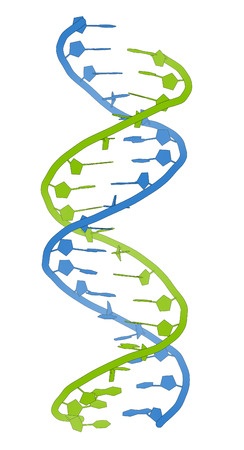Broader is better.
 If you visit St. Louis this summer, don’t miss Genome: Unlocking Life’s Code at the St. Louis Science Center. It took 13 years and $3 billion to complete the Human Genome Project that maps out DNA. DNA the blueprint for your health, personality traits and appearance.
If you visit St. Louis this summer, don’t miss Genome: Unlocking Life’s Code at the St. Louis Science Center. It took 13 years and $3 billion to complete the Human Genome Project that maps out DNA. DNA the blueprint for your health, personality traits and appearance.
A genetic test that analyzes a drop of blood or saliva harnesses the power of the Genome Project. The test can identify gene mutations and potential inheritable conditions. Texas Fertility Center offers these preconception tests to all couples, regardless of family history of known genetic illnesses, because most carriers of genetic mutations are not affected and do not have a family history of a genetic disease.
Prior to pregnancy, genetic testing gives couples the ability to see if they are at risk from having a baby with a devastating illnesses, and if they are, they can take proactive steps to prevent this. In the past, most doctors zeroed in on people from various racial or ethnic groups that are higher risk for certain diseases.
- European Caucasians are at risk for cystic fibroisis.
- African Americans may unknowingly carry sickle cell anemia.
- Ashkenazi Jews have a higher risk for Tay-Sachs or Canavan’s Disease.
- Thalassemia appear in those of Mediterranean descent.
Who needs genetic testing?
Today, we know that everyone benefits from having access to next generation DNA sequencing (NGS). Texas Fertility Center’s Medical Director, Dr. Kaylen Silverberg, was the primary author on two recent studies that reinforced the importance of offering this advanced NGS genetic testing prior to pregnancy.
- The first of the two studies found that older methods for cystic fibrosis carrier testing would have missed between 15 and 26% of carriers and 299 of the 403 distinct, disease-causing mutations.
- A second study analyzed the occurrence of spinal muscular atrophy, SMA, in 63,080 patients and detected 1,067 carriers, a 1 in 59 risk. ACOG does not currently recommend SMA screening for all patients of reproductive age.
The Human Genome Project created for us a model, a best-case scenario for how our genes align. With genetic testing, scientists assigned a fluorescent tag to enzymes that seek, find and tag a pair of genes. With NGS, computers compare the base model with the sequence on the individual test to digitally find abnormalities.
If you are planning a pregnancy, ask us about genetic testing. Contact Texas Fertility Center for a consultation.














Comments are closed.